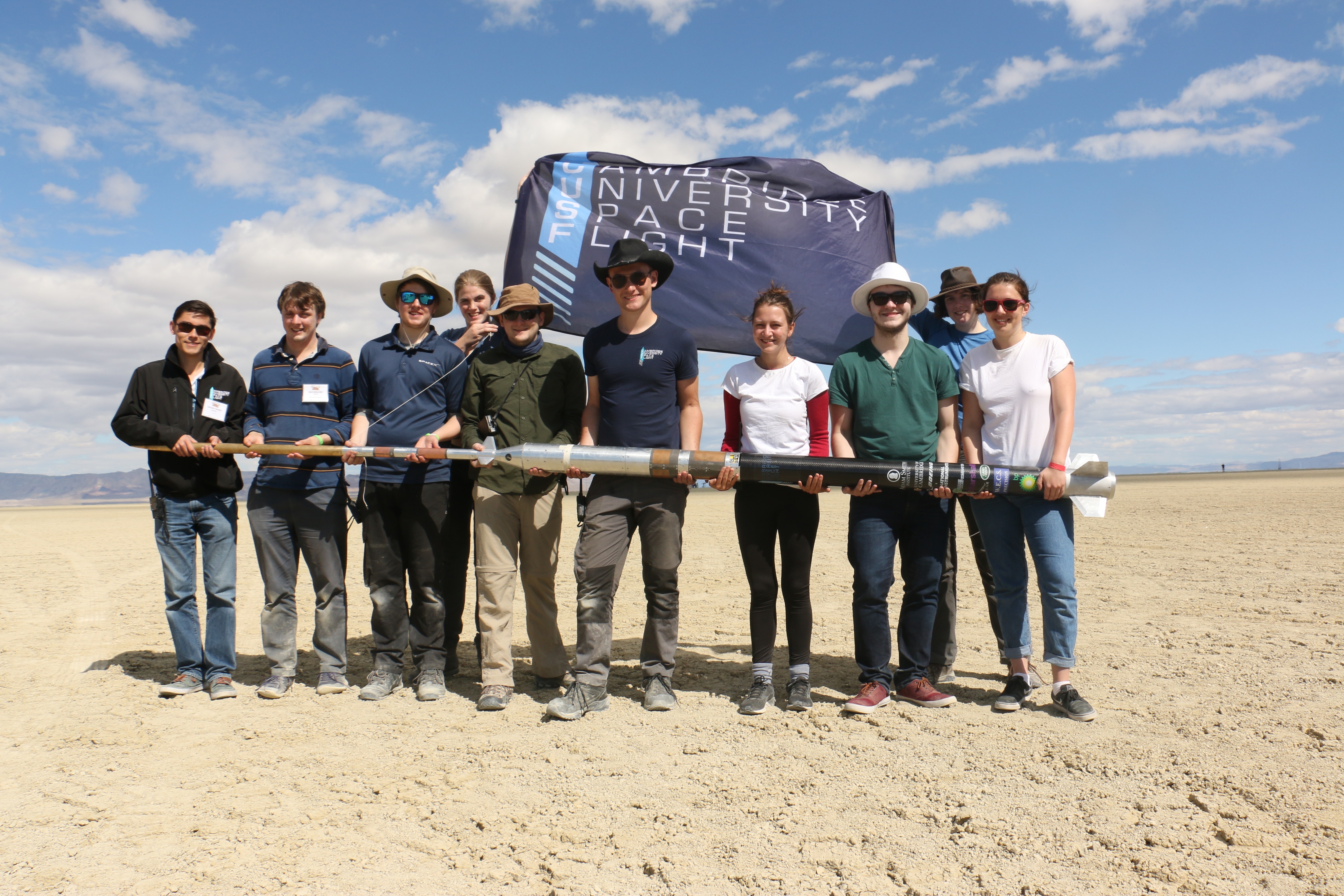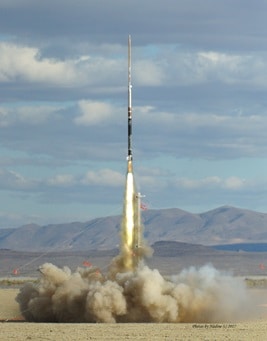Cambridge University Spaceflight

Cambridge University Spaceflight: Martlet 4
Cambridge University Spaceflight (CUSF) is a student society founded in 2006. Starting in 2009, CUSF has developed the Martlet series of rockets in order to break various altitude records. The latest incarnation, Martlet 4, is designed to break the UK amateur built altitude record. The current record is 10.3km and Martlet 4 is designed to exceed 15km.
Previous Martlets have used commercial solid rocket motors. These motors burn a solid mixture of fuel and oxidiser. They cannot be tested before launch and are difficult to transport and handle. In addition, their high thrust and short burn time means rockets often go 'too fast too low' and lose a lot of altitude due to drag in the dense lower atmosphere.
The enabling technology that will allow Martlet 4 to surpass previous altitudes is the development of our own hybrid rocket engine. A hybrid rocket engine uses a liquid oxidizer and a solid fuel. It can be tested before launch and is safer than a solid rocket motor. Its longer burn time and gentler thrust lead to an increased altitude.
Hybrid rocket engines are typically difficult to ignite. In order to vaporise the solid fuel, a lot of heat must be put in the system. Most amateur hybrid engines are ignited using a small solid rocket motor inserted inside the engine. This can be unreliable and can pose a risk to the operation of the motor. Thanks to Swagelok sponsorship we are developing a robust and repeatable ignition system, using Swagelok valves and tubing to supply premixed air and propane to a burner built into the top of the rocket engine.
This ignition system will be tested in late November 2018, in preparation for engine testing in January. It will then be used to launch Martlet 4 in California in the summer of 2019.
Martlet 4 Facts |
|
 |
Total length: 6.2m |
| Engine length: 4.5m | |
| Diameter: 180mm | |
| Thrust: 5kN | |
| Burn Time: 16s | |
Cambridge University Spaceflight Fire Britain's Largest Ever Nitrous Hybrid Rocket
Cambridge University Spaceflight (CUSF) have successfully completed the first static firing of their custom hybrid rocket engine. Over last 18 months the team have been working tirelessly on Project Pulsar, designing and building the Pulsar engine from scratch, culminating in the successful test this week at Airborne Engineering Ltd's test facility.
The Pulsar engine burns Nitrous Oxide combined with High Density Polyethylene fuel to produce thrust for a total of 36 seconds. Over the course of the test, the engine produced a measured impulse of 53,855 Newton seconds giving it the largest impulse of any Nitrous Hybrid rocket ever fired in the UK.

The test itself marks a key milestone in the next chapter of high power rocketry at CUSF with the Pulsar engine intended to power the Martlet 4 rocket project set to launch in 2020.

